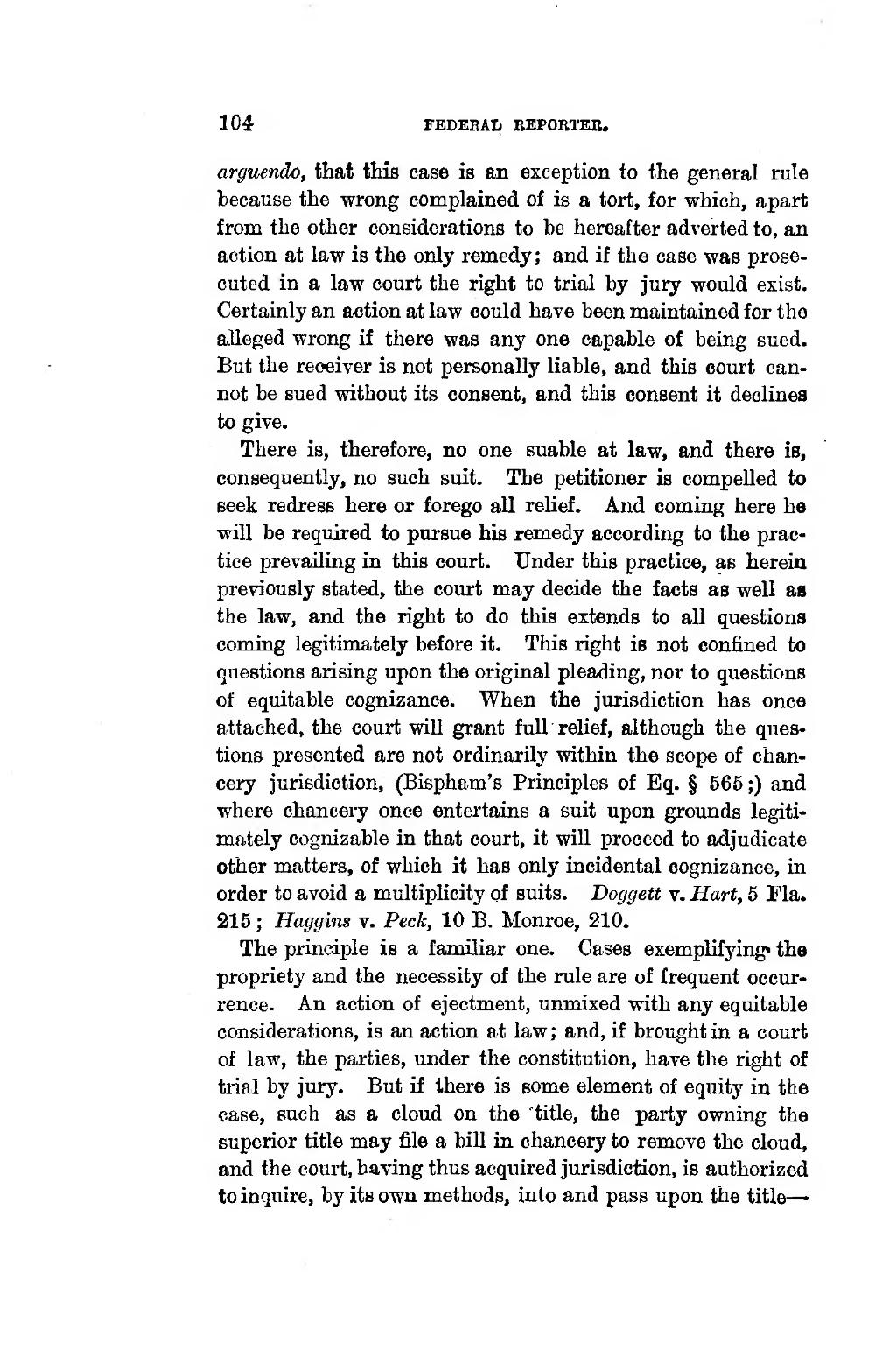arguendo, that this case is an exception to the general rule because the wrong complained of is a tort, for which, apart from the other considerations to be hereafter adverted to, an action at law is the only remedy; and if the case was prosecuted in a law court the right to trial by jury would exist. Certainly an action at law could have been maintained for the alleged wrong if there was any one capable of being sued. But the receiver is not personally liable, and this court cannot be sued without its consent, and this consent it declines to give.
There is, therefore, no one suable at law, and there is, consequently, no such suit. The petitioner is compelled to seek redress here or forego all relief. And coming here he will be required to pursue his remedy according to the practice prevailing in this court. Under this practice, as herein previously stated, the court may decide the facts as well as the law, and the right to do this extends to all questions coming legitimately before it. This right is not confined to questions arising upon the original pleading, nor to questions of equitable cognizance. When the jurisdiction has once attached, the court will grant full relief, although the questions presented are not ordinarily within the scope of chancery jurisdiction, (Bispham’s Principles of Eq. § 565;) and where chancery once entertains a suit upon grounds legitimately cognizable in that court, it will proceed to adjudicate other matters, of which it has only incidental cognizance, in order to avoid a multiplicity of suits. Doggett v. Hart, 5 Fla. 215; Haggins v. Peck, 10 B. Monroe, 210.
The principle is a familiar one. Cases exemplifying the propriety and the necessity of the rule are of frequent occurrence. An action of ejectment, unmixed with any equitable considerations, is an action at law; and, if brought in a court of law, the parties, under the constitution, have the right of trial by jury. But if there is some element of equity in the case, such as a cloud on the title, the party owning the superior title may file a bill in chancery to remove the cloud, and the court, having thus acquired jurisdiction, is authorized to inquire, by its own methods, into and pass upon the title —
